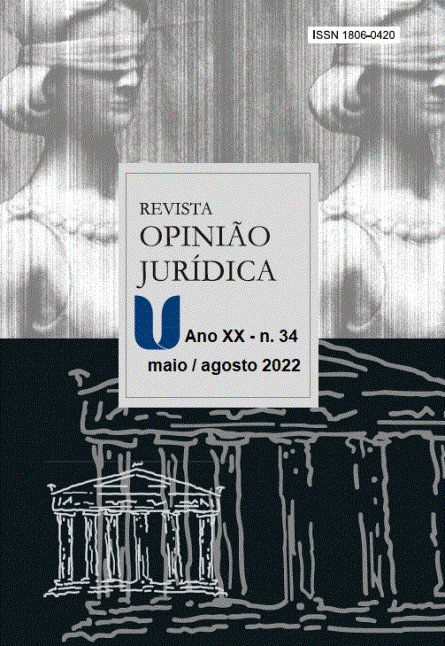ARTIFICIAL INTELLIGENCE AND LEGAL CHALLENGES
DOI:
https://doi.org/10.12662/2447-6641oj.v20i34.p180-196.2022Keywords:
artificial intelligence, legislation, legal personality, legal responsibility, implementationAbstract
Objective: This paper is dedicated to Artificial Intelligence and it consists in identifying the role and functions performed by Artificial Intelligence by noting the innovations brought by the introduction of this technology. Artificial Intelligence seems to be the most successful achievement of scientists today. As a result of this development and widespread use have arisen discussions on the legal regulation of Artificial Intelligence.
Methodology: The main methodological approach applied is the normative approach. The paper will be based on the qualitative method, which consists of collecting and processing data in order to compare and interpret the provisions or policies that provide for artificial intelligence. The following research methods will be applied in this paper: research method, descriptive method, comparative and analytical method, interpretive analysis method and illustrative method.
Results:There is still no proper legislative framework on Artificial Intelligence. Despite not having a consolidated legal framework, states have made the first efforts in drafting legal acts and norms governing the field of Artificial Intelligence. From the concrete analysis of existing legislative acts in many countries, we conclude that the intention of the legislator in trying to regulate the field of Artificial Intelligence arises as a result of the disadvantages of using these technologies, their widespread use and ability to influence the way of the development of many processes.
Contributions: The article contributes to the theoretical treatment of Artificial Intelligence by arguing on the problems of its legal regulation.
Published
How to Cite
Issue
Section
License
CESSION OF COPYRIGHTS
The submission of articles to analysis for publication on Opinião Jurídica implies the author(s) transfers copyrights to Centro Universitário Christus – UNICHRISTUS for reproduction, publicizing, distribution, printing and publication, according to the Publication Norm 414R, Opin. Jur., Fortaleza, year 12, n. 16, p.1-414, Jan./Dec. 2014, costs to be bore by UNICHRISTUS, in whatever format or means that may or shall exist, in accordance to articles 49 and following of Federal Law 9.610/98.
1. In ceding copyrights, the author(s) agrees to do so in exclusivity, free of charge and for the totality of the work.
2. UNICHRISTUS may make the work, in its entirety or in parts, available for scholarly purposes, without altering its contents, except for small corrections that are deemed necessary.
3. The cession of copyrights is valid in all countries and for versions of the material in its original language or translated into a foreign language.
RESPONSIBILITY FOR THE CONTENT
By submitting an article, the author(s) declare to have sole responsibility for the content of the piece and is(are), therefore, responsible for any judicial or extrajudicial measures referring to it.
1. In case of joint authorship, all authors are considered collectively responsible, except when proved otherwise.



















